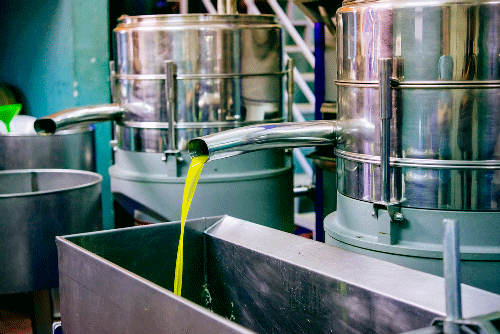Every time you turn on the television, look at your social media news feeds or surf the internet, we are constantly hearing about organics – who sells them, why we should purchase them, and how good they are for us. This term has turned into something trendy, and since we here at Better Mind Body Soul are into natural remedies and aromatherapy, it’s worth finding out if the essential oils we use are natural.
So, are doTERRA essential oils organic? Before we can answer that question, there are a few things we’d like to cover first.
What Makes Something Organic?
The term “organic” literally means derived from natural materials. For a product to be labeled USDA Certified Organic, it has to go through a series of tests given by the agency for production, handling, and labeling. During this phase, an agent will administer an onsite inspection to decide whether or not the grower will get the certificate.
Do These Standards Apply To Essential Oils?
Organic products, at least the ones you purchase in the store, are primarily food items, like produce, meats, grains, and dairy. When it comes to the USDA label, the producers of those types of items that want to claim this alt have to go through the tests we mentioned earlier. Yet, when it comes to essential oils, there are no standards set for aromatherapy products to be deemed certified.
Good Housekeeping reports that pesticides will not end up in that little dark bottle of extracts your purchase, depending on the way the oils are extracted from their host plants. This is explained in the process below.
Steam Distillation
The majority of scents sold in the world are extracted via the steam distillation method. For this to be successful, the process requires temperatures higher than pesticides can handle. They cannot survive.
In the slight chance that a molecule of the pesticide does survive, they are larger than the essential oil molecules and too heavy to be carried away by the steam. So, they are left behind with the rest of the host plant. At the end of this process, the essence is naturally separated from the water-like substance that was once steam. Anything that might have been carried away is left behind when the oils are removed.
Cold Pressing
Most scents are extracted by steam distillation, but there are some that are collected via expression, otherwise known as cold pressing. Typically, this method is used for citrus scents like orange, lemon, lime, and grapefruit, among others. This is done by pricking the fruit rind until the essences are released from the pores and accumulate in a container.
These extracts have a slight chance of carrying pesticides that are left behind on the rinds of the fruit used for extraction. So it seems that whether or not an essential oil is organic depends not only on how it is extracted but whether or not the harvest it was extracted from was grown without chemicals or pesticides.
So, Are doTERRA Essential Oils Organic?

I would say that when it comes to the literal, sure, all aromatherapy extracts are natural because they are derived from natural sources, but the certification standards aren’t consistent throughout the world. DoTERRA sources their products from every corner of the globe, and there are no standards for certifying when it comes to aromatherapy products.
So, no, they are not organic in the official “certified” sense.
Essential Oils By doTERRA

Okay, so the products sourced and distributed by doTERRA are not officially certified by the USDA. As we’ve already covered, none of that matters to the extent of that kale you plan on putting in your salad for lunch. Those leafy greens might have pesticides on them unless you consciously bought veggies that are chemical free.
But if there were any chemicals on that lavender doTERRA sourced from France, it would have run off in the distillation process. Lucky for us, doTERRA is selective about where they source their harvest and only deal with growers that follow their stiff standards of quality. They do this because they want to offer the world the purest product available.
It is their belief that any company can buy up land and cultivate their own crops, but they prefer to deal with the indigenous farmers that have learned how to grow from their ancestors, who, in turn, learned from the ancestors before them. An organization that puts that much importance in the history of growing their sources is likely conscious of using product sans pesticides.
Conclusion
Whether or not any essential oils were derived from organic harvests doesn’t seem to make much of a difference since toxins like pesticides are unable to survive the distillation process. That said, extracts that are collected correctly, not diluted, and unspoiled by chemicals are pure and natural. But there are no certification standards for essential oils so, in an official sense, doTERRA is not organic.
If you felt this post helped you, please let us know in the comments section below. If you know someone that might benefit from this information, then please share it.
The post Is doTERRA Organic? Looking Inside That Little Dark Bottle appeared first on Better Mind Body Soul.



No comments:
Post a Comment